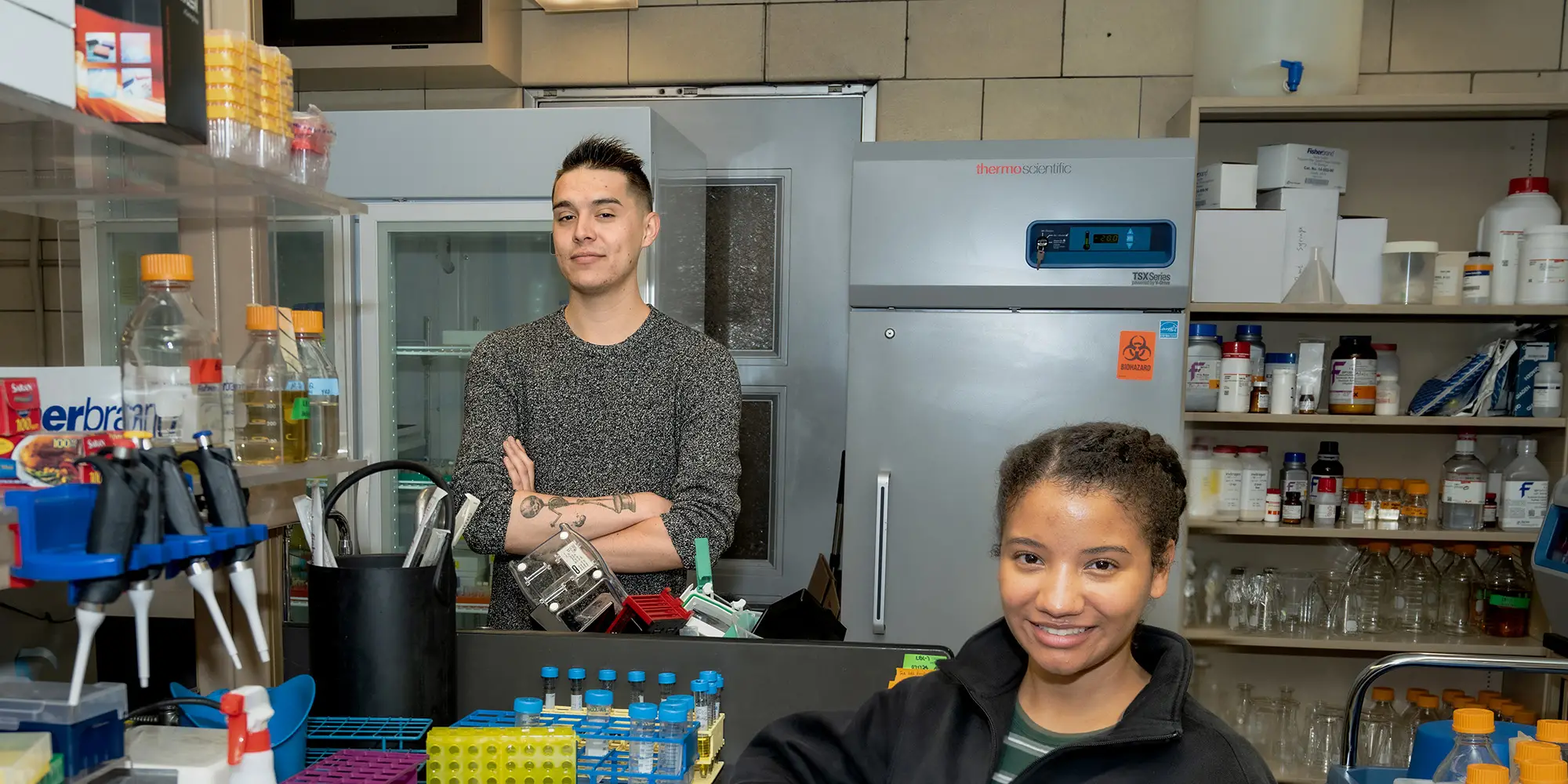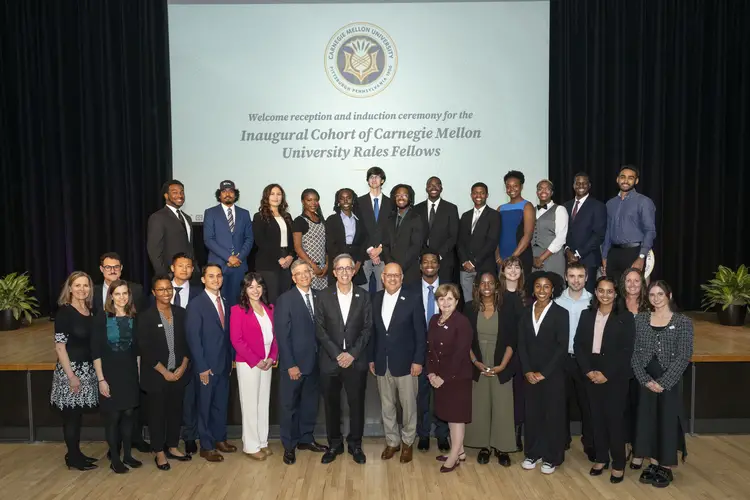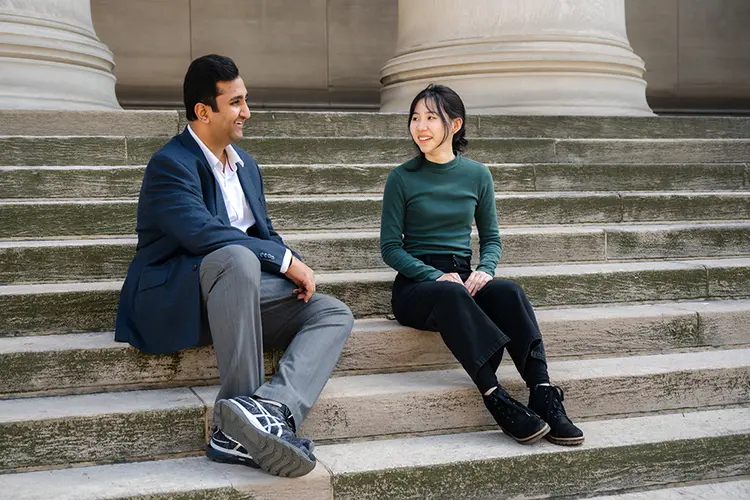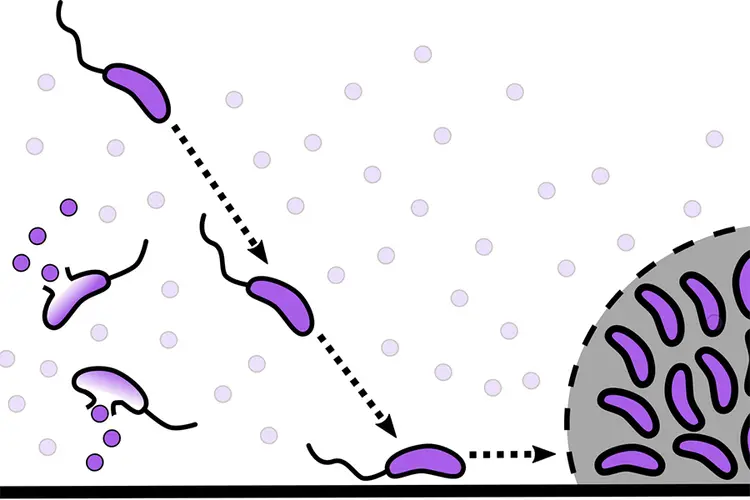
Biological Sciences Postbaccalaureate Fellowship Offers Students Research and Grad School Preparation
Media Inquiries
As an undergraduate student at Arizona State University, Joseph Peterman did not get the research experience he thought he needed to enter a Ph.D. program. Then, he heard about Carnegie Mellon University’s Postbac Research Fellowship in Quantitative Biology(opens in new window).
“I wanted to attend a Ph.D. program at Carnegie Mellon, and I reached out to Professor Joel McManus at the Mellon College of Science. He recommended that I apply to the postbac program and contact a new professor, Dr. Liz Ransey, for my research interests,” Peterman said.
Created in 2022, the postbac fellowship in Carnegie Mellon’s Department of Biological Sciences(opens in new window) provides students with one to two years of research training, mentorship and professional development within departmental research labs. These experiences prepare them for the next steps in their academic careers.
Stephanie Wong-Noonan(opens in new window), associate teaching professor of biological sciences, serves as head of the postbac fellowship program and advisor to the fellows. She says the program is an excellent chance for the fellows to delve into academic research in preparation for Ph.D. programs.
“They’ve finished undergrad, so they kind of know what they want to do, but they’ve only started to delve into what they want to do in terms of research and postgrad,” Wong-Noonan said. “This offers them the chance to network both with professors and other students and figure out what they want to do.”
The initial cohort included two students. This year’s cohort has five students, including Peterman and Yeritmary Rodriguez Delgado.
Rodriguez Delgado graduated from the University of Puerto Rico-Cayey and wanted to gain more research experience in biological sciences before starting graduate school. While participating in Carnegie Mellon’s Data Analytics Summer Immersion Experience(opens in new window) (DASIE), she learned about the postbac program and saw it as an opportunity to advance her scientific career.
“I’ve done a lot of data analytics and behavioral assays, but I feel like I lacked the experience to critically think about results that came from standard molecular bio techniques,” Rodriguez Delgado said. “This is a great opportunity for my skills as a scientist to become more well-rounded.”
Peterman and Rodriguez Delgado work with Liz Ransey(opens in new window), assistant professor of biological sciences, to advance their research training and professional development.
“The postbac program enriches our community with diverse trainees who are eager to learn and to contribute to our cutting-edge research programs,” Ransey said. “Yeritmary is very determined and can easily adapt her mindset to learn and thrive in completely new areas of research. Joseph is extremely creative and uses his creativity to approach some of our most challenging issues.”
The Ransey Lab studies the functional diversity of gap junctions, intercellular communication channels that are critical to normal cellular function but are typically altered during diseases like cancer. Members of the lab focus on investigating and redesigning the molecular interactions between gap junction proteins, connexins.
“Connexins are essential for everything that happens in our bodies. They’re like centers for communication,” Rodriguez Delgado said. “I hadn’t learned about them before I worked with Professor Ransey, and they’re super interesting.”
Rodriguez Delgado investigates five different connexins whose expression changes are associated with Parkinson’s disease. She aims to understand how changes in gap junction composition — driven by changes in expression levels of these individual proteins — affect disease.
Peterman assists with a collaboration between Ransey and Subha Das(opens in new window), associate professor in the Department of Chemistry(opens in new window), on efforts to evaluate engineered gap junctions as potentially beneficial direct transport channels between extracellular vesicles and target tissues.
“These extracellular vesicles will contain pyridostatin, which is a chemo drug, and will be used to help target tumor masses,” Peterman said. “This will help with the efficacy of the chemo drugs and insulate them from the rest of the body.”
Besides developing their research skills with Ransey, Peterman and Rodriguez Delgado work with Wong-Noonan to prepare for their future graduate school applications. Both hope to earn graduate degrees from Carnegie Mellon.
“It’s really exciting to see the students grow as researchers and watch them gain confidence about research,” Wong-Noonan said. “Seeing them get set up for their future paths and have success is really rewarding.”
Fellows from past cohorts have gone on to graduate school, medical school and industry. They have attended institutions including Georgia State University, the University of Pennsylvania and the University of Pittsburgh.


